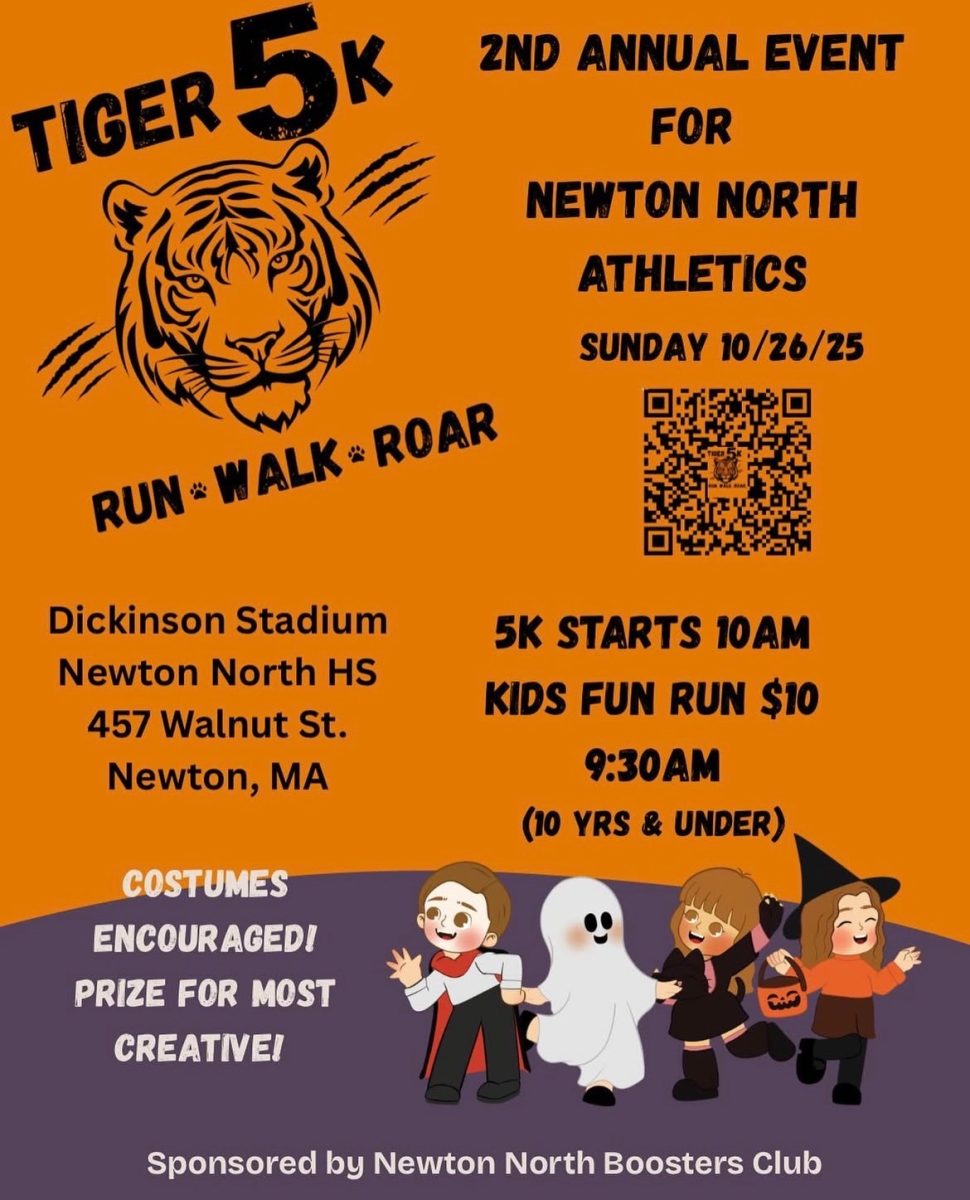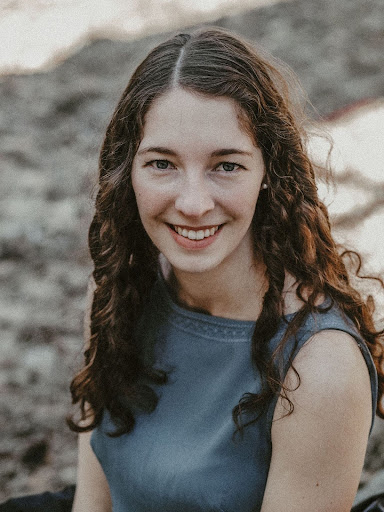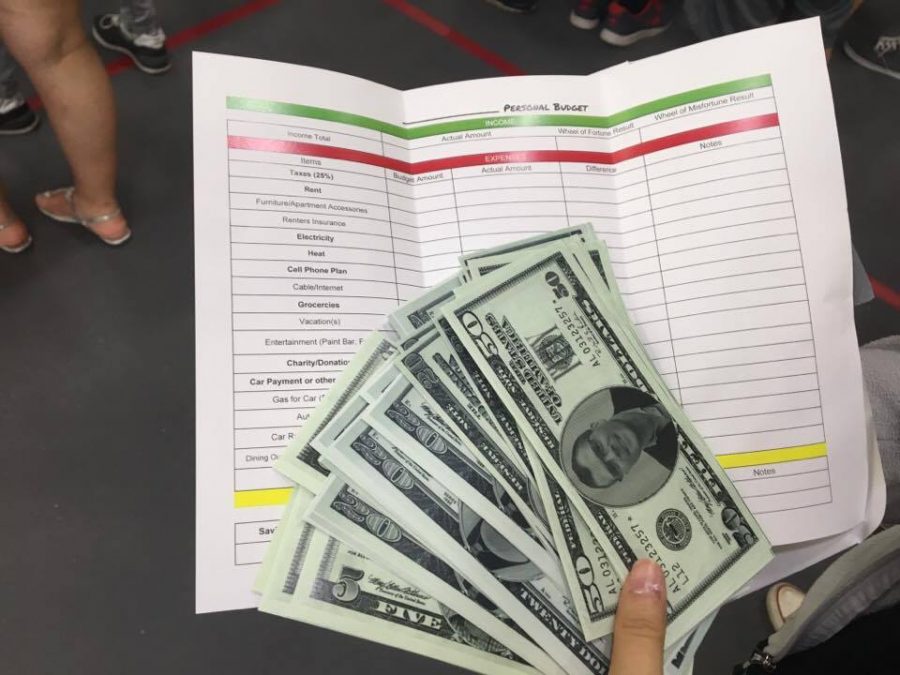Students played a realistic “game of life” in the second annual Reality Fair, where they simulated budgeting their money and had the opportunity to win raffle prizes, during B-block May 19 in the SOA. The fair was funded by a state grant and organized by junior Hayley Soehle as a part of an independent study.
Participants began by going to an envelope station where they picked up fake money, a budgeting sheet, and instructions for the game. From there, they went to an accounting table, where 25 percent of their original money was deducted to represent paying taxes. According to Soehle, this percentage was “a little high,” but, “we really just want them to understand that they’re losing a lot of the money they earn.”
After they finished the first two steps, students were free to roam around the SOA and spend their money at any of the various vendors that had set up booths, which included real businesses such as Cabots and the Paint Bar, as well as basic payments like cable and internet bills. Students also could compare different companies who provided the same service and choose who to give their business to, such as Village Bank and Belmont Savings Bank or the YMCA and Boston Sports Club.
“It’s amazing,” said senior Mukund Desibhatla. “You’ve got a real bank, Cabots, all these people from around Newton, all these local stores. We just came out of paying taxes, so that’s definitely a harsh reality. It’s a real game of life—it’s not like the board game, it’s real—so I’m definitely learning a lot from this.”
Bunny Aronson, who ran the booth for Aronson Insurance, explained that she often has clients who have “absolutely no idea” why insurance is necessary. She added, “This is basically a game of life, teaching the kids that, once you’re off mommy and daddy’s budget, you have to learn how to live and pay your bills. This is showing the kids how to buy an apartment and how to buy a car. You can’t buy a car without insurance.”
Students also could go to the wheel of fortune or the wheel of misfortune, which accounted for unplanned incidents in life, both good and bad, that result in a change of finances. Players could land on inheriting money or winning the lottery among other good strokes of fortune but could also have a rent increase or even a baby. The latter—seemingly a good thing—results in a sharp increase in spending.
“I think the wheels are really important because there are accidents that will happen, and you’ll either lose a lot of money or gain a lot of money,” said Soehle.
According to Business teacher Robert Kane, the fair was intended to teach students about the “real world.”
He said, “Eventually they’re going to be on their own, and they’re going to have to take their money and spend it accordingly on certain categories that are required as part of life,” adding that he wants “students to realize the importance of budgeting and using their money wisely and not squandering it.”
Freshman Colby O’Hanley said he enjoyed the fair because “in high school we tend to not learn about this kind of stuff and it’s very important. I took Money Matters, but I feel like this is an extension on that real world experience.”
Similarly, senior Julia Lailler said, “It’s cool because you get to see all the different things you’re going to have to be thinking about in the future, so you already kind of have an idea of what you’re going to have to manage as you get older. It’s just kind of a fun activity to do, yet it’s also teaching you something that you don’t normally learn about in school.”
Although the fair was meant to be educational, Kane said, “I know the kids are having a good time, and that’s the most important thing.”
Reality Fair provides students opportunity to simulate real life financing
June 13, 2017
Donate to The Newtonite
More to Discover


















































